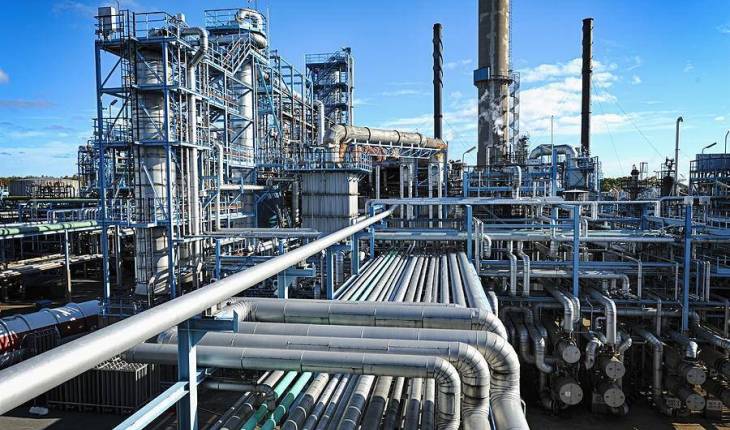Nigeria’s modular refineries are facing significant challenges due to bureaucratic obstacles imposed by the Nigerian National Petroleum Company (NNPC) to secure alternative crude oil supplies.
This issue is threatening the survival of these refineries and the broader goal of boosting local refining capacity.
Despite Nigeria’s status as Africa’s largest oil producer, local refiners are struggling to obtain the crude oil needed to maintain operations.
Leaked memos and interviews with industry insiders reveal that the state-owned NNPC is slow to approve requests for alternative crude oil supplies, leaving modular refineries in a precarious position.
Modular refineries, which are smaller-scale refineries with significantly lower capital investment requirements compared to full-scale refineries, were seen as a solution to Nigeria’s refining capacity issues.
A leaked memo from AIPCC Energy Limited, operators of the Edo Refinery and Petrochemicals Company Limited (ERPCL), highlights the operational hurdles faced due to the persistent lack of crude oil supply.
Despite being a fully functional 1,000 barrels per stream day refinery located in Ologbo, Edo State, ERPCL has struggled to access crude oil due to bureaucratic bottlenecks.
According to ERPCL, they have existing crude oil supply agreements with Seplat and ND Western since 2022, but NNPC’s delays have prevented them from accessing these supplies.
ERPCL’s letter to Mele Kyari, NNPC’s group chief executive officer, details the numerous correspondences and meetings over the past three years, all of which have failed to secure a steady crude supply.
The letter states, “On 18th August 2021, our team led by our chairman met with you and your top management team to discuss our intention to buy crude oil from NNPC. We immediately wrote to the NNPC seeking crude supply.”
Despite subsequent site inspections and commercial negotiations, no progress has been made.
ERPCL also noted that it has a Crude Oil Supply Agreement with ND Western to lift crude oil from the Ughelli Pumping Station (UPS) owned by NNPC Exploration and Production Limited (NEPL) and operated by Shoreline.
With over 25 licensed modular refineries in Nigeria, only five are currently operational, producing diesel, kerosene, black oil, and naphtha.
The rest are either in various stages of completion or remain stalled due to the unavailability of crude oil and other issues.
Eche Idoko, the publicity secretary of the Crude Oil Refinery Owners Association of Nigeria (CORAN), has called on the federal government to treat indigenous refiners fairly, especially given that foreign investments in the sector have dried up.
Idoko highlighted that five CORAN members have completed their refineries, but others are struggling to secure financing due to the lack of guaranteed crude oil supply.
“The challenge is that the people who are supposed to finance them have not disbursed financing for construction because they want some level of guarantee,” Idoko said. “A guarantee that if they finish the refinery, they are going to get feedstock, which, of course, is crude oil.”
Industry experts warn that the economic impact of inadequate crude supply is profound.
Agriculture and manufacturing, which depend heavily on diesel and other refined products, are suffering from high operational costs due to exorbitant fuel prices.
The National Bureau of Statistics reported a 20 percent increase in food prices over the past year, directly linked to high diesel costs driven by insufficient local refining capacity.
The Federal Executive Council’s recent approval directing NNPC to sell crude oil to the Dangote Petroleum Refinery and other modular refineries in naira is seen as a potential boost for domestic refining capacity.
However, industry insiders stress the need for concrete actions to ensure the policy’s effective implementation.

